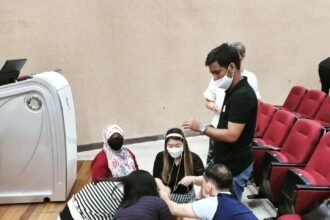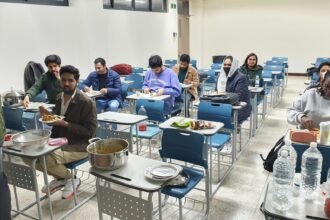Studying abroad can be a life-changing experience, offering the opportunity to gain a new perspective, improve language skills, and deepen cultural understanding. However, studying abroad requires careful planning and preparation. Here are 10 key steps to take before pursuing higher studies abroad:
Assess Your Goals and Objectives
Before embarking on a study abroad journey, it’s important to assess your goals and objectives. Consider your personal, academic, and career goals and how they align with studying abroad. Research programs and universities that match your objectives and choose the best fit.
Choose the Right Destination
Choosing the right destination is crucial when selecting a study abroad program. Identify factors to consider such as language barriers, cultural differences, political climate, and geographical location. Research the destination to ensure it aligns with your goals and objectives.
Managing Health and Safety
Prior to studying abroad, it’s important to research healthcare options and obtain necessary vaccinations. Understand the safety precautions and emergency protocols of your destination. This will help you stay healthy and safe while studying abroad.
Preparing for Departure and Arrival
Packing essentials and preparing for climate changes are key factors in having a successful study abroad experience. Arranging airport transportation and arrival logistics will lessen stress and make the transition smoother.
Academic Preparation and Research
Research your study abroad program’s courses, programs, and faculty. Identify what kind of medical preparation you need and what language proficiency exams are required. Preparing for standardized tests is also important.
Financing Your Education Abroad
Studying abroad can be expensive. Research funding options such as scholarships, destination grants, loans, and other financing options. Understanding the costs of studying abroad is crucial to ensure the financial feasibility of your study abroad journey.
Arranging Housing and Transportation
Researching housing options and their costs will help you stay within your budget. Planning transportation to and from your destination will also help you navigate your new environment.
Obtaining Necessary Documents
Applying for visas, passports, and other essential documents is a time-consuming process. Collect all necessary medical and insurance records before leaving.
Cultural Preparation
Understand cultural norms and customs in your destination country. Prepare for potential culture shock and language barriers. Learning a few key phrases in the local language will be helpful.
Conclusion
Preparing for higher studies abroad takes time and requires attention to detail. Recap the key steps in preparing for higher studies abroad and the importance of proper planning and research.
FAQs
What is the best way to finance my education abroad?
There are several funding options such as scholarships, destination grants, loans, and other financing options. Researching and understanding these options is crucial.
How do I choose the right study abroad program?
Research your study abroad program’s courses, programs, and faculty. Identify what kind of medical preparation you need and what language proficiency exams are required.
What should I expect culturally when studying abroad?
Understanding cultural norms and customs in your destination country is crucial. Prepare for potential culture shock and language barriers.
How do I prepare for potential homesickness while studying abroad?
Stay connected with friends and family back home. Join clubs and groups at your destination to make new connections. Prepare mentally for the ups and downs of studying abroad.






